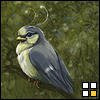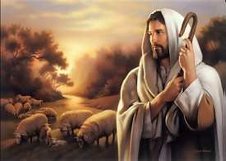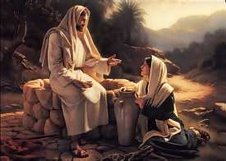Part II
Manasseh Genesis 48:1
" Some time later Joseph was told, "Your father is ill." So he took his two sons Manasseh and Ephraim along with him." NIV
Lehi Alma 10:3
"And Aminadi was a descendant of Nephi, who was the son of Lehi, who came out of the land of Jerusalem, who was a descendant of Manasseh, who was the son of Joseph who was sold into Egypt by the hands of his brethren."
I did research in various bible verses and read what the "Bible Dictionary, by Miller" said about Manasseh. Also, I did the Google thing again about the 'Sons of Manasseh' plus 'Lehi and Manasseh'. I found quite a few Mormon related web sites that are debating the theory of Lehi being a literal son of Manasseh. The Christian community uses the bible for a point of reference. I found that Manasseh had two sons. The Jewish community will agree with this also through the "Jewish Publication Society Tanakh." With all of my studies, there is no Bible/Book of Mormon connection regarding Lehi being a son of Manasseh that is made outside of Mormon documents.
The Two Sons of Manasseh 1Chronicles 7:14
"The sons of Manasseh; Ashriel whom she bare: (but his concubine the Anamitess bare Machir the father of Gilead:"
Joseph Smith carefully chose to insert his Lehi into the Tribes of Manasseh. I have concluded that due to the fact that Manasseh had so many descendants and had such a large chunk of land on both sides of the Jordon, that the subject of Lehi's origin would be long debated over and not concluded until many people became believers of the lies JS wrote.
The Bible and The Book of Mormon - A genealogy
The Bible and The Book of Mormon - A genealogy


PART I
No reference to a Bible connection is in the 6th chapter heading in the Book of Mormon. Helaman 6:10
"Now the land south was called Lehi, and the land north was called Mulek, which was after the son on Zedekiah: for the Lord did bring Mulek into the land north and Lehi into the land south."
The only place that the sons of Zedekiah are mentioned is in 2 Kings 25:7. This is the account of their deaths.
2 Chronicles 36:10-12
"In the spring, King Nebuchadnezzar sent for him and brought him to Babylon, together with articles of value from the temple of the Lord, and he made Jehoiachin's uncle, Zedekiah, king over Judah and Jerusalem. Zedekiah was twenty-one years old when he became king, and he reigned in Jerusalem eleven years. He did evil in the eyes of the Lord his God and did not humble himself before Jeremiah the prophet, who spoke the word of the Lord."
Just a small foot note about Zedekiah and his sons:
2 Kings 25:7
"They killed the sons of Zedekiah before his eyes. Then they put out his eyes, bound him with bronze shackles and took him to Babylon."
The Old testament states that Zedekiah's sons died before his eyes. It in no way states that "some" of his sons were killed, but rather "the sons", meaning all of his sons were killed. Mulek can not be the son of Zedekiah due to this fact alone.
I did a google search on "Sons of Zedekiah" and Mulek". The Sons of Zedekiah brought up only verses in 2 Kings and what the Book of Mormon says. As far as this "Mulek" person is concerned, the only place that he is mentioned in any literary source that I can find is in the Book of Mormon.
Zedekiah reigned for eleven years as king over Judah and Jerusalem from 597-586 B.C. The Book of Mormon states Mulek-Son of Jewish King Zedekiah [c.589 B.C.] Now if that is proof of Mulek, then it's real poor proof. Like I said, the sons of Zedekiah were killed before his eyes, and then his own eyes were put out.
Testing the Book of Mormon
Parable of the Sower
This beautiful parable that is spoken of by our Savior in Matthew 13:3-23 had been broken down by Mormon Apostles who took the meaning completely out of text. I couldn't believe that such a simple message of the different degrees of faith had been twisted so much as to totally change the meaning completely.
The following is what I found out about this parable just recently. I never knew that this is the Mormon church's stand on the subject.
This is from a Lesson (11) shown in "The Gospel Doctrine Class" segment in a web site called beardall2000.com. I will cover only the subject on the parable of the Sower here on this post.
---------------------------------------------------------------------------------
The lesson states that in this parable the Lord is talking about the condition of the soil, not the sower or the seed. Everything below is taken from a Mormon Lesson. The lesson here is not from a Christian lesson book. My comments are in red.
* There are four kinds of soil.
1. The soil by the wayside.
2. The soil in stony places.
3. The soil where thorns grow.
4. The good soil.
The Soil by the Wayside
Hear ye therefore the parable of the sower. When any one heareth the word of the kingdom, and understandeth it not, then cometh the wicked one, and catcheth away that which was sown in his heart. This is he which received seed by the way side. Matt 13:18-19
*Who are these people?
*Those who are hardened by false doctrines and evil deeds.
*Elder Bruce P. McConkie: "They are the religionists in our day who close their ears to new revelation and choose to believe such doctrines as that men are saved by grace alone, without more, thus leaving them free to walk in worldliness and still, as they suppose, gain salvation." (Mortal Messiah, 2:250)
The scripture is speaking of a person rejecting the word of God even though he hears the Word. The scripture in no way is speaking of false doctrines or religionists. It is talking about not understanding the word and getting caught up in the wickedness of his heart.
The Soil in Stony Places
But he that received the seed into stony places, the same is he that heareth the word, and anon (at once) with joy receiveth it: Yet hath he not root in himself, but dureth for a while: for when tribulation or persecution ariseth because of the word, by and by he is offended. Matt 13:20-21
*Who are these people?
*They who believe the word
*They know the Book of Mormon is true
*They have a testimony of Joseph Smith
*They have the testimony of Jesus in their souls
*They do not press forward with a steadfastness in Christ
*They do not continue to learn the doctrines of salvation
*They do not pay tithes and offerings or serve the church
*Do not endure to the end
*When persecution, trials or temptation arises they are unable to bear them
*The new plant whithers in the bright sun of gospel light
This part of the parable is speaking of hearing the word of God and rejoicing in it, yet the person does not stand on solid ground in the truth in which the scriptures speaks. This results in a person with shallow faith and can be swayed to go towards wickedness. This word does not speak of the Book of Mormon, Joseph Smith, tithes and offerings, or service in the church (Mormon church).
The soil Where Thorns Grow
He also that received seed among the thorns is he that heareth the word; and the care of this world, and the deceitfulness of riches, choke the word, and he becometh unfruitful. Matt 13:22
*Who are these people?
*The seed is good and the soil is good
*They choose to let the thorns and thistles grow along with the seeds of righteousness
*They seek to serve God and mammon (money) at the same time
*The cares of the world lead them astray
*The lusts of the flesh lead believing men astray
*The Lord is not seeking part time saints
This part of the parable is defined well. The 'part time saints' thing could be up for debate.
The Good Soil
But he that received seed into the good ground is he that heareth the word, and understandeth it, which beareth fruit, and bringeth forth, some an hundredfold, some sixty, some thirty. Matt 13:23
*Who are these people?
*They that hear, understand, endure, bring forth fruit, receive the word in an honest and good heart, keep the commandments, and bring forth fruit with patience
*They will be judged and rewarded according to their works
*Those who keep the whole gospel law shall bring forth an hundred fold and inherit the fullness of the Father's kingdom
*Others shall gain lesser rewards in the mansions which are prepared
*Joseph Smith: "This parable was spoken to demonstrate the effects that are produced by the preaching of the word. And we believe that it has an allusion directly to the commencement, or the setting up, of the kingdom of that age." (TPJS, p97)
This part of the parable demonstrates what will happen to a person who hears and understands the word of God as it is written in the bible. It doesn't say anything about being judged and rewarded by works alone. 'Gospel law' could be up for interpretation, and 'lesser rewards in the mansions' is absurd. JS speaks of effects of preaching---not so---the parable is speaking of the different effects of hearing and understanding the word of God.
----------------------------------------------------------------------------------
Mormon theology, and those who made it up, twisted a simple truth about hearing and understanding the word of God. Jesus was plain and clear in His explanation of the sower.
Mormonsim Attacks all other Churches
"I was answered that I must join non of them, for they [all churches] were all wrong; and the Personage who addressed me said that all their creeds were an abomination in his sight; that those professors were all corrupt...." (Pearl of Great Price, Joseph Smith 2:19)
"... all other churches are entirely destitute of all authority from God; ...the most corrupt of all people. Both Catholics and Protestants are nothing less than the "whore of Babylon" whom the Lord denounces...." (Seer, p. 255)
"We talk about Christianity, but it is a perfect pack of nonsense.... The Devil could not invent a better engine to spread his work than the Christianity of the nineteenth century."
(Journal of Discourses, vol. 6, p.167)
"There is no salvation outside the Church of Jesus Christ of Latter-day Saints." (Mormon Doctrine, 1979 edition, p. 670)
I read these quotes from another web site. Challenge Ministries. A wonderful web site that will give you more in depth insight on the truth about Mormonism. Go ahead, go to their web and find out for yourself. (www.challengemin.org)












